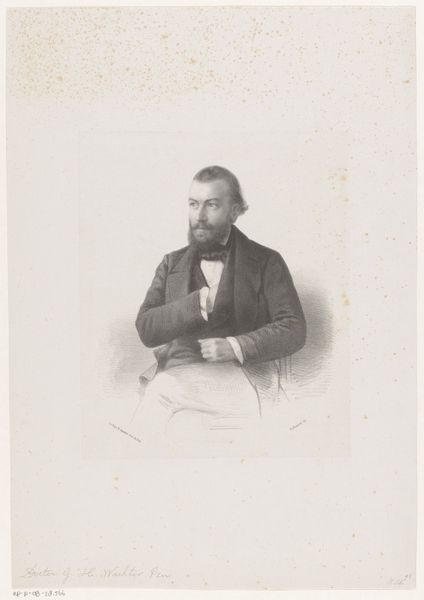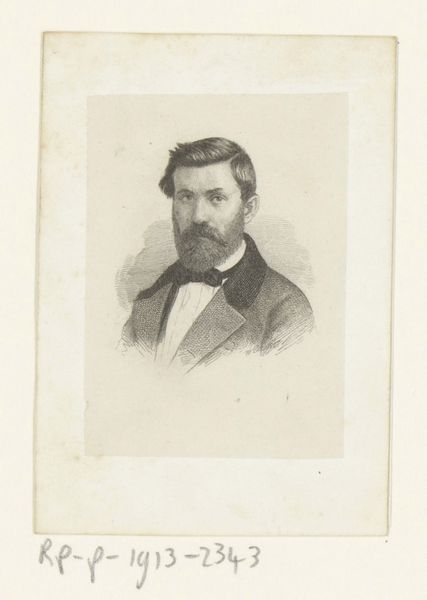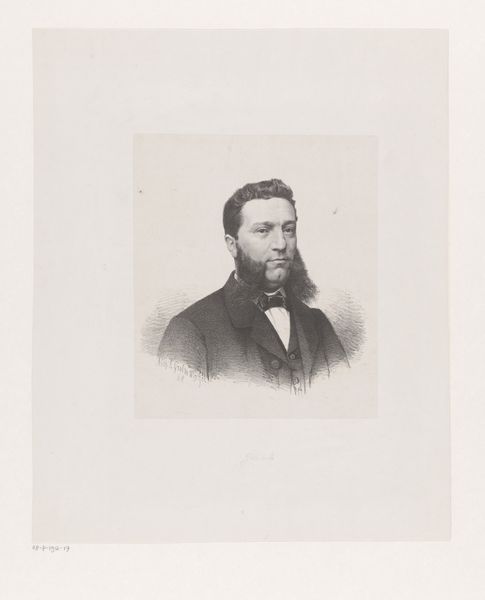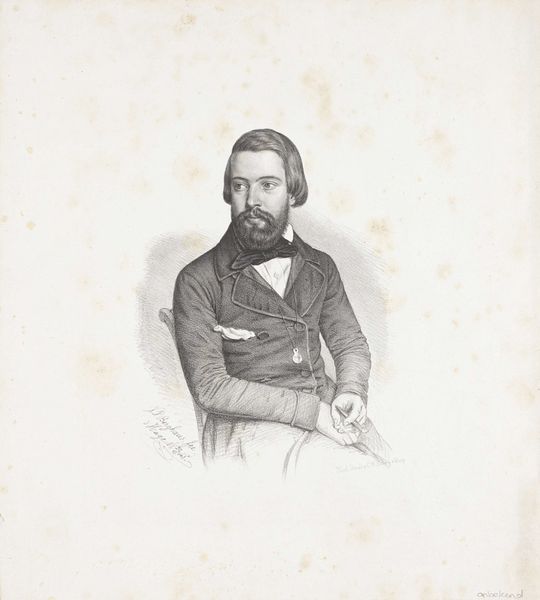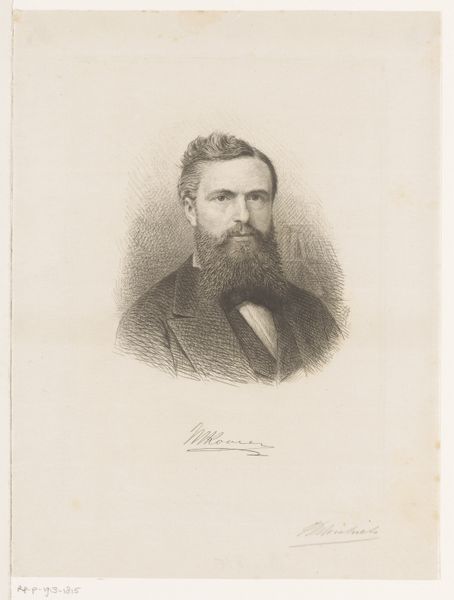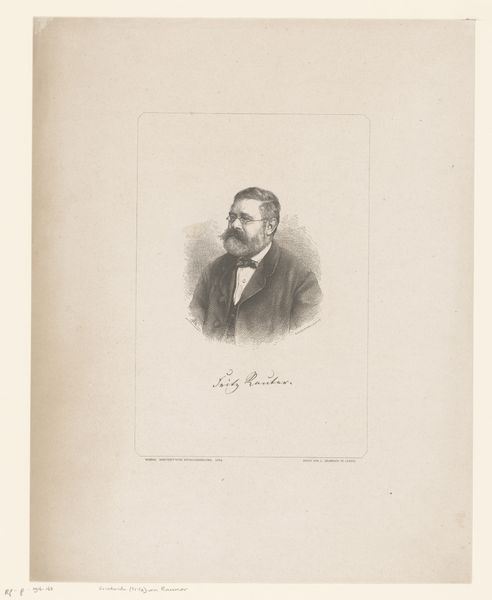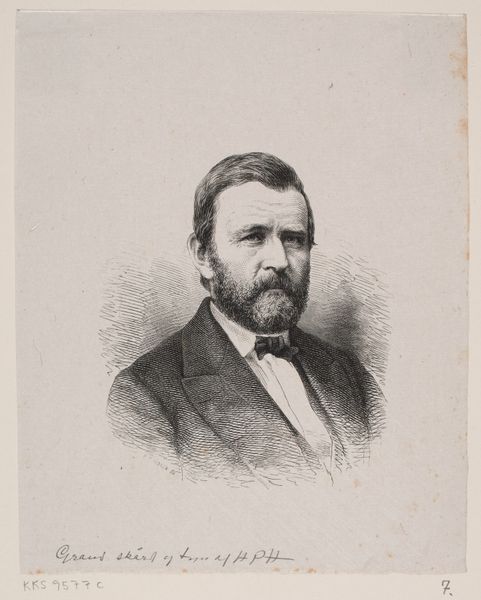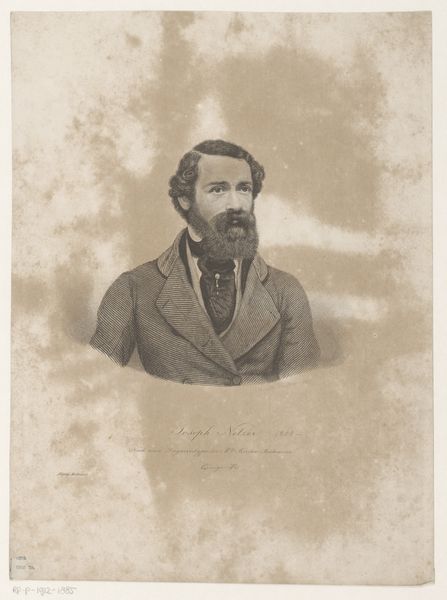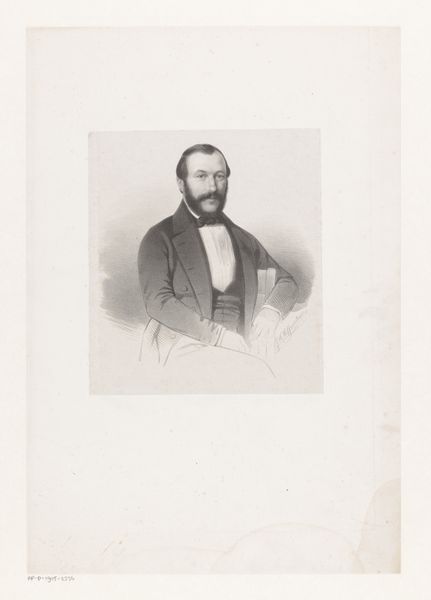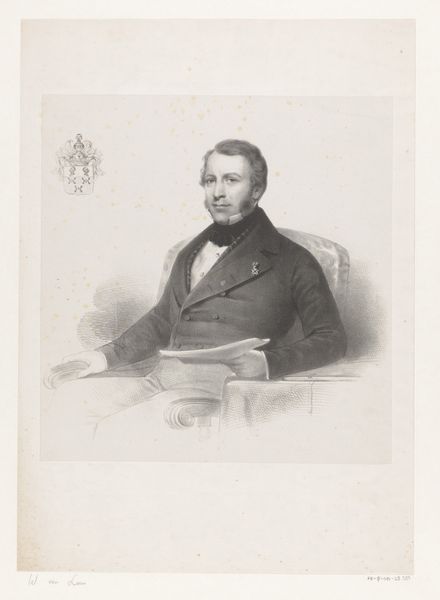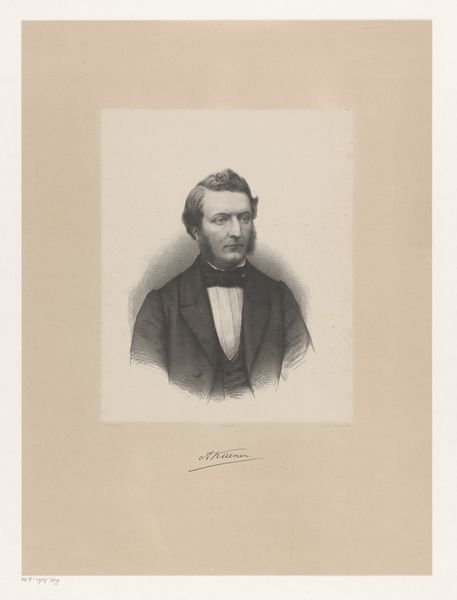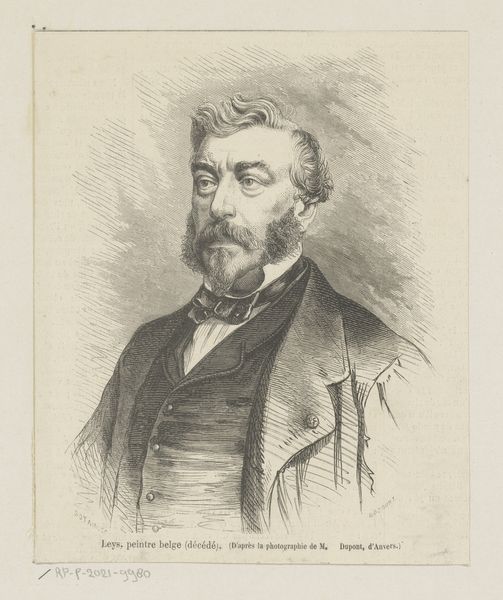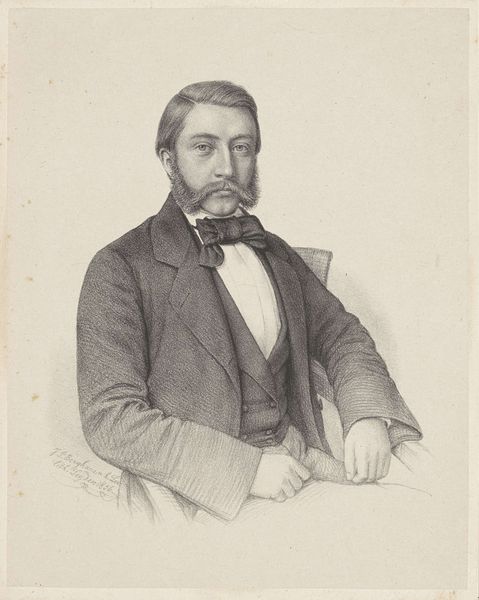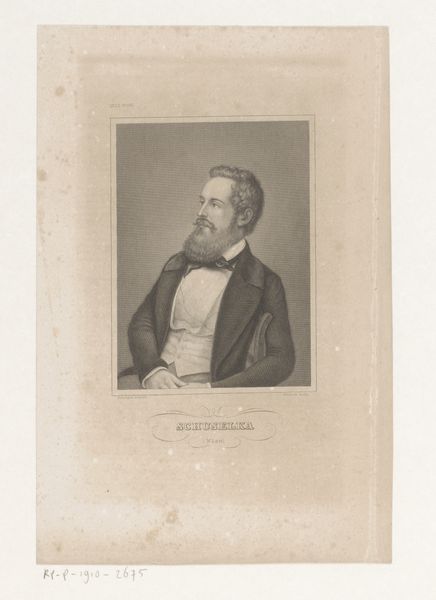
drawing, pencil
#
portrait
#
pencil drawn
#
drawing
#
light pencil work
#
pencil sketch
#
charcoal drawing
#
portrait reference
#
pencil drawing
#
pencil
#
portrait drawing
#
pencil work
#
academic-art
#
realism
Dimensions: height 355 mm, width 285 mm
Copyright: Rijks Museum: Open Domain
Editor: This is "Portret van Ch. Fles," a pencil drawing by Johan Hendrik Hoffmeister, dating back to sometime between 1851 and 1883. It’s quite striking. The subject seems so serious and distinguished, almost severe. What kind of statement do you think Hoffmeister was making with this portrait? Curator: It's tempting to see a straightforward depiction of bourgeois respectability, but let's complicate that. Consider the context: mid-19th century. Photography is emerging, threatening the portraiture industry. This drawing, with its meticulous detail, perhaps speaks to a yearning for permanence and status in a rapidly changing social landscape. Also, consider what we don't know about Fles. What class did he belong to? What aspirations did Hoffmeister project onto him? Editor: So you’re saying the portrait may reflect social anxieties of the time as well as the sitter's personality? Is it possible Hoffmeister was subverting expectations in some way? Curator: Precisely. What if Fles held radical political beliefs, disguised behind a respectable facade? The artist may or may not have intended a subversive message, but that potential is there for us to uncover and interrogate. Ask yourself, what were the politics of portraiture in this era and who had access to representation? Editor: I never thought of it that way! Seeing it in that light opens up a whole new avenue for interpreting not just this portrait but others from the time. It’s like the image is a stage upon which different power dynamics are enacted. Curator: Indeed. And we, as viewers, are invited to unpack those dynamics and how they impact our understanding today. The work invites constant critical dialogue.
Comments
No comments
Be the first to comment and join the conversation on the ultimate creative platform.
